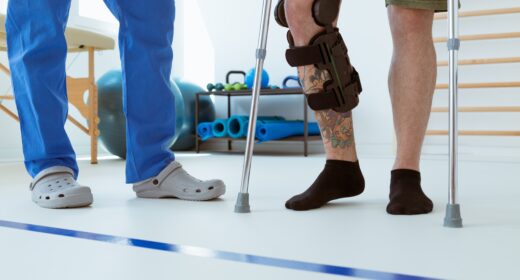Have you been injured and looking to make a claim? Be forewarned: your “private” social media accounts will likely not stay private once your social life is put into issue in your personal injury claim.
An Ontario Superior Court of Justice case from 2018, Isacov v Schwartzberg, operates as a warning to injured claimants to be cautious about their social media accounts and postings.
Background
In the case, the plaintiff (“Maya”) was a pedestrian who had been injured when a vehicle ran over her right foot. She sued the driver and owner of the at-fault vehicle for damages.
In the course of the lawsuit, Maya was assessed by several physicians, who asked her about her injuries related to the accident. In their written reports, those physicians reported that Maya had stated that she “cannot run” and “will never again be able to wear shoes with heels”. She also indicated that, prior to the accident, she was a professional ballroom dancer and now had to give it up as she was not permitted to wear high-heeled shoes. Finally she told them that she had lost interest in all the things she used to enjoy.
Attempts to discredit
As the case approached its trial date, the defendant hired a private investigator to try to prove that Maya was lying about the extent of her injuries. The investigator was able to capture screen shots from the Instagram account of an apparently close friend of Maya’s. Those shots showed her on dance floors (although it is not clear she was actually dancing) and wearing “high” heels (though it is not reported how high).
These photos looked bad for Maya. To make matters worse, the defendant was able to use the investigator’s report and those Instagram shots as a basis for a motion before the Court asking for production of all social media content on the Internet contained in Maya’s accounts for the previous 3 years and forward to trial.
The ruling
Master Short found that because Maya had put her social enjoyment of life in issue, and had alleged that there were things she could no longer do (such as wear high heels), the photographs of her social life and activities, both before and after the accident, had to be provided to the defendant.
In reaching his decision, he considered the issue of Maya’s privacy, particularly relating to private postings on, for instance, Facebook. However, he referred to an earlier case, Leduc v. Roman, decided by Justice D.M. Brown, who had the following to say:
“A party who maintains a private, or limited access, Facebook profile stands in no different position than one who sets up a publicly-available profile. Both are obliged to identify and produce any postings that relate to any matter at issue in an action.”
The rationale provided was that a social networking site likely contained some content relevant to the issue of how the plaintiff had been able to live life since the accident.
Maya was required to produce to the defendant copies of all her social media pages, including Facebook and Instagram for the previous three years.
What can personal injury claimants do?
Here is what can you do to reduce the risk that social media could harm your personal injury case:
- Understand that a “private” setting does not mean your posts will remain private. Expect that everything could be produced to the other side.
- Consider how much your social media means to you. For some injured people, social media can provide a social life line. Others could easily live without it. Check your accounts and consider terminating those that are unnecessary.
- In speaking with your doctors, choose your words accurately and carefully. Avoid words like “never”; for example, saying something like “I never do the things I did before the accident”. Never is different from rarely or not often.
For more information about social media and personal injury claims, contact our Personal Injury Group.




